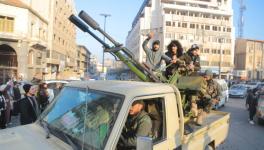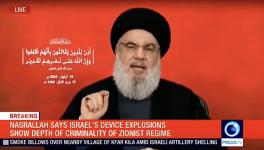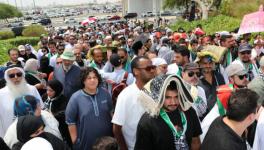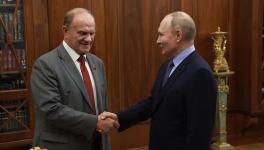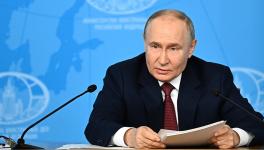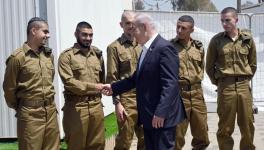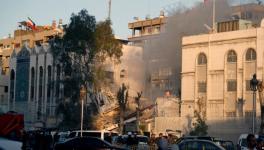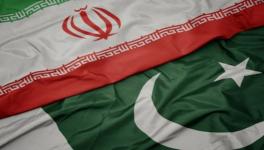What to Make of the Syrian Conflict?
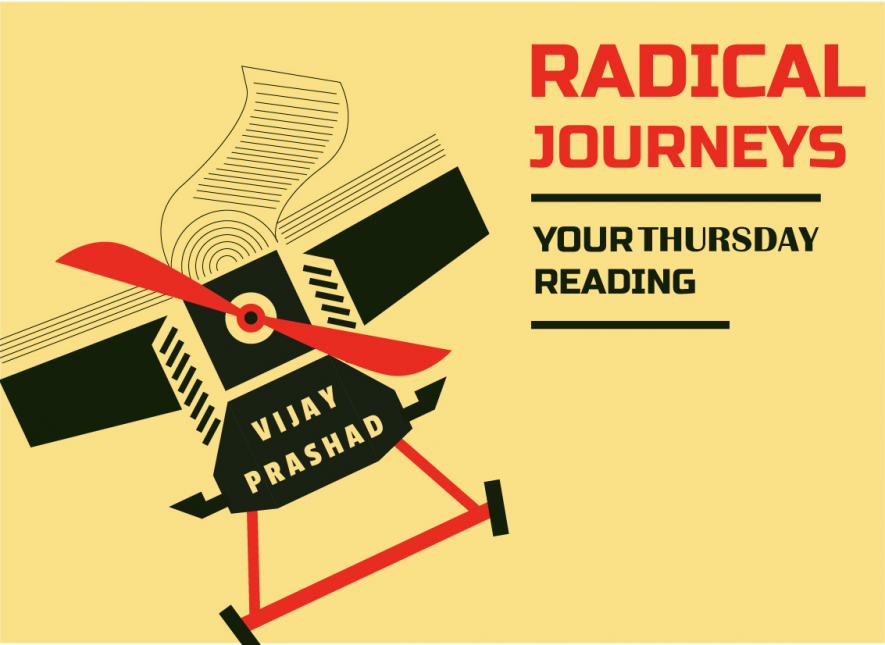
Intolerable Suffering
No conflict zone is easy to decipher. Each side in war has its own interpretation. Neither side is either fully right or fully wrong. Reporters of integrity try to find a way to tell the story without denying the fact that there are multiple interpretations of the war. There have always been reporters who are chiefly in the fray as propagandists. But there are others who want to know what is happening, to swat aside the fog of war to understand motivations and movements.
From March 2011, when the conflict began, I tried to report the Syrian war from the standpoint of its victims – the ordinary Syrians, the refugees, the displaced people, the civilians. It seemed important to tell their stories, to try and understand developments in Syria from their point of view.
But even this is fraught. Civilians have opinions. They have histories. They are rooted in the conflict, not merely spectators of it. In refugee camps in Lebanon and in the camps of combatants in Syria, I heard different views of the war. Some people opposed the government led by Bashar al-Assad, while others feared the arrival of the al-Qaeda groups. Fear stalked the land. It took shape in the body of different ghouls. The noise of the war was deafening. The smell terrible. How could an ordinary person not have an opinion about this war?
It seemed clear to me from quite early into the war – by late 2012 – that there was exhaustion amongst the non-combatant Syrian population. I wrote a three-part series for Jadaliyya, which ended with these words – ‘The politics are bewildering, the human suffering intolerable’. I had met a Syrian family at the refugee registration centre in Beirut, where they had fled from southern Syria. Their faces were lined with worry. ‘We want to go back home’, they said. ‘We don’t want to be strangers in a strange land’. They were not able to return until earlier this year – more than five years later. Both the man and the woman were deeply opposed to Assad’s government. But now their views are different. ‘Better Assad than the destruction of Syria’, they wrote to me in a WhatsApp message last week.
Tricontinental Dossier
A month ago, we – at Tricontinental – received a request to produce a dossier on Syria. Confusion about this war is commonplace in all circles, including in the international Left. The details are unclear, the broader political strokes impenetrable. Certainly, a person of the Left opposes wars of regime change, such as have been carried out by the West in Iraq and Libya. Sensitive and decent people are also horrified by the nature of contemporary war – the horrors of aerial bombardment, the use of terrible weapons, the savage destruction of civilian landscapes. It is hard to understand why there has been no discernible movement on the peace process.
It is hard – in fact – to have a clear-headed position on this war, to take a stand. No doubt one is against the extremist rebels. No doubt one is against the aerial bombardment. No doubt one would like to see peace in Syria, not the peace of ‘anything is better than this’, but real peace.
Eastern Ghouta
The most recent site of bewilderment was Eastern Ghouta, a suburb of Damascus. It had been held by a variety of rebel groups since 2013. These rebel groups have been fighting with each other as much as they have been fighting against the Syrian government. The Saudi-backed proxy – Jaish al-Islam – had fought pitched battles against the al-Qaeda proxy – Jabhat al-Nusra – in the spring of 2016 and again in the spring of 2017 (Jabhat al-Nusra had morphed into Tahrir al-Sham). The Syrian government had pounded the enclave from the air and had sealed it shut. Pitched battles this year resulted in a deal that allowed the Syrian forces to take Eastern Ghouta and allowed the rebels to be evacuated to Idlib. Roughly eight thousand rebels and their families will eventually make this journey.
Meanwhile, reports have now come in that 40,000 people have returned to Eastern Ghouta to their much-damaged homes. Their return is a sign that some form of security has now returned to the suburbs of Damascus. It means that rocket attacks against the capital city will now likely be a danger of the past.
All eyes are now on Idlib. As the Syrian army has taken city and town, it has cut deals with the extremist fighters and sent them off to Idlib. Now the city and the adjoining countryside have become the heartland of the remaining extremist rebels. The Syrian government has made it clear that it will eventually move on Idlib. A deal has been struck with Turkey, which had previously threatened to defend the city (in exchange, Turkey was allowed to take Afrin and remove the Syrian Kurdish rebels from there). Although, as Turkey reiterated this week in Istanbul, it has eight observation posts in Idlib to monitor the ceasefire. It is unlikely that the West will intervene to defend the extremists of Idlib.
Reconciliation
In 1982, the Syrian government massacred 20,000 people in Hama. This was in retaliation for a violent uprising by the Syrian Muslim Brotherhood. The blood from 1982 germinated thirty years later in the 2011 uprising. A massacre in Idlib this year will not necessarily settle the soul of Syria. It will likely put off for some decades another political reckoning. In our Tricontinental dossier, which you can read here, the Syrian economist Omar Dahi calls for a Syrian political process that would include all Syrian factions. Concessions need to be made by the government. Syria needs to be allowed to breathe.
But at the same time, is it not idealistic to call for a political process when the negotiation table is empty? The extremists who are now in Idlib have made it clear that they will only negotiate if Assad resigns. There is no chance of that he will step down. The space for a discussion between the two sides is nil. The isolation of Idlib will not necessarily weaken the stubbornness of the combatants. That is why more blood will be spilled. More reports will be written on the bloodshed. Syria will continue to fall apart.
Get the latest reports & analysis with people's perspective on Protests, movements & deep analytical videos, discussions of the current affairs in your Telegram app. Subscribe to NewsClick's Telegram channel & get Real-Time updates on stories, as they get published on our website.









